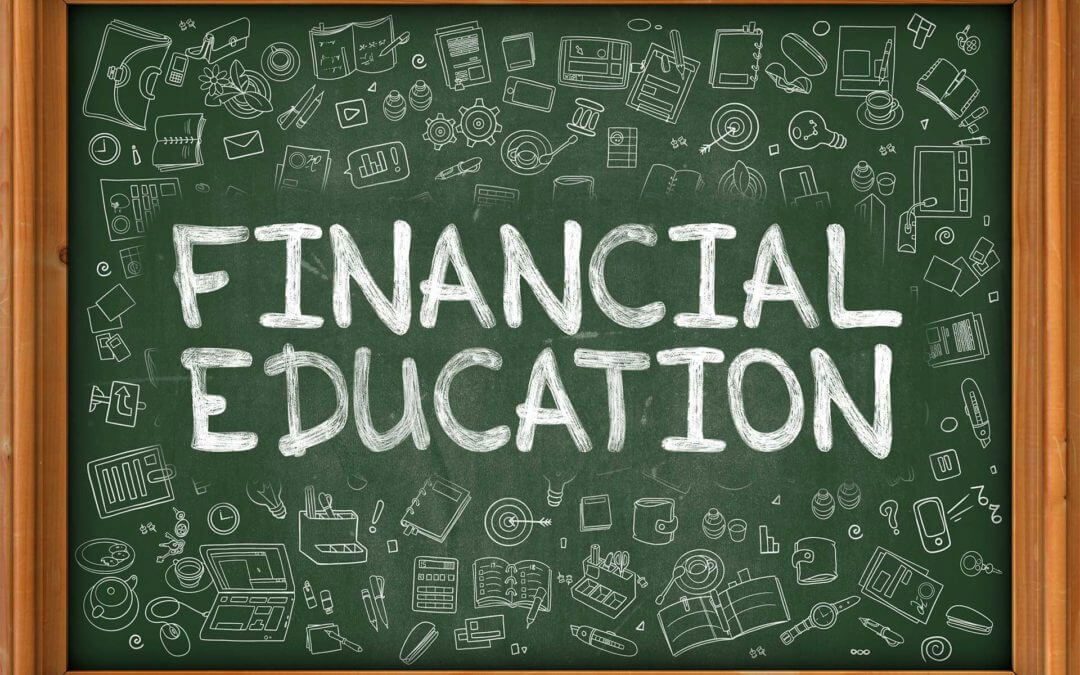Financial Education

How much do your kids really understand about money?
Ok, so not everyone has kids to worry about however this point holds true among younger generations in general. As our society gets farther and farther away from cash-in-hand transactions our youth is being exposed less and less to how money itself actually functions.
Where does cash come from, where does it go, how is it generated, and most importantly, what is it worth. The even more abstract concepts such as investing, inflation, cost of living increases, supply and demand and consumption Vs. production are even farther from grasp. A combination of economics being taught less and less in schools along with adults carrying more and more plastic (credit/debit cards), phones being able to process contactless payments, online ordering and pickup as well as people now having things shipped more than ever has led to a perfect storm resulting in our youth having absolutely no idea how transactions and money really work.
Maybe I should clarify exactly what I mean by "youth" what I would consider to be a young person falls between the ages of 8-16. I myself have 6 children, 3 of which fall within this age range and 3 much younger. My oldest is 14, youngest is 2. I wouldn't expect my 2-year-old to know how to pay for an item at the store however, my 14-year-old should have a pretty good idea of how to handle a transaction. I walked to school as a child and carried my own lunch money, I paid for my school lunch and always had change left over for penny candy from the convenience store I passed to and from school. Maybe I’m dating myself a bit, but the point is I was maybe 8-10 years old and able to handle cash transactions on a daily basis.
To put this into perspective I'll use an example from my day-to-day life. I myself work as a retail store manager for an AT&T wireless authorized retailer. I work 40+ hours a week, I make commissions based on my store performance and historically have been pretty good at my job and as a result I'm pretty well compensated. My wife and I primarily use our bank cards for everything we do, I also have my Apple wallet set up, so I'll use Apple Pay where it’s available. Put simply we do not handle cash very much at all.
I would traditionally not consider any of this to be a problem, the society we live in is going more and more cashless and I see that as a good thing. However, there are side-effects that need to be offset by education once you remove the physical cash-based transactions systems.
A prime example would be a previous trip to a store, my daughter (age 11 at the time) spotted a high dollar toy my wife and I didn't really see a need for. Upon explaining to our daughter that the toy was expensive for what it was, and we didn't have the money to throw away on it she proceeded to ask us why we didn't just swipe our card not understanding that the card was tied to our bank which had limited funds in it at the time.
In my job I am seeing an increase of younger adults (18-25) that have absolutely no idea how to handle a cash transaction. Both individuals I’ve employed as well as customers we serve. I’m not talking they don’t know how to handle cash generally speaking, I mean they don’t know how much money they have to hand over in order to satisfy the bill they intend to pay. For example, a younger individual came in to pay a bill of approx. $130, they handed me cash that totaled up to $186, when I handed the excess ($56) back to them they were genuinely confused about why I had done so. I had to explain the denomination of the bills they handed me and explain how that was more than what was required. If this were a one-off situation maybe I could attribute that to the individual suffering some sort of condition that rendered them unable to count but the sad truth, is it wasn’t a one-off situation. It happens a LOT with a LOT of customers that all share a common trait. They are young.
Over the last few years my wife and I have had really deep and meaningful discussions about working for a living, the value of money, how the traditional banking system works. How monetary supply can affect wages, prices, inflation and everything in between. Considering the economic situation, we’re in I consider it to be one of the most valuable conversations you can have with the younger generations.
I guess, as a parent, my message is simple. Do yourself, the youth in your lives and the community they interact with a favor and educate them financially. The schools aren’t doing it anymore and as a participant in the 21st century if financial education isn’t at the forefront of all you do then you are destined to be taken advantage of and prayed upon by those that do.